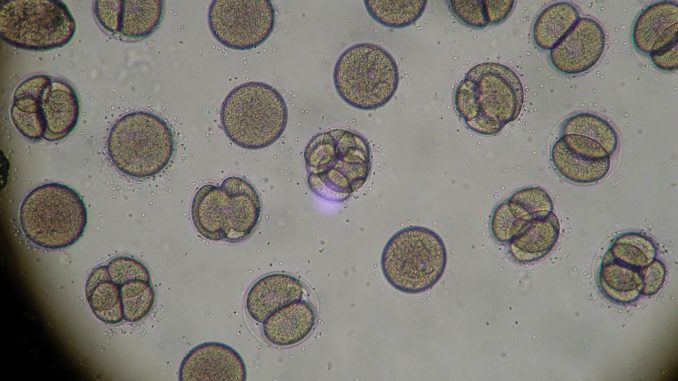
Over 4000 eggs and embryos being stored for families in Ohio are reported to have been affected in a recent freezer malfunction. The clinic says that 950 families have been affected and their eggs have been lost.
In a letter to the families, The University Hospitals Fertility Clinic said that has, with a “heavy heart” informed everyone affected. The letter also said: “The technical manner in which the eggs and embryos are stored in these freezers complicated our initial determination of how many patients and specimens were affected.”
The storage tank failure occurred earlier in the month, however, it’s been found that the number of families who’ve lost eggs or embryos is nearly twice as high as initially predicted. It was unclear when the issue was first reported whether any of the eggs or embryos were still viable. The clinic has now confirmed that “it’s unlikely any of them are viable”.
How did the failure happen?
The clinic said that the malfunction was caused by an unexpected change in temperature in the liquid nitrogen storage tank. After further investigation, it was found that the alarm system, which was designed to alert staff to any temperature changes, was switched off at the time of the incident.
The letter said: “We don’t know when the remote alarm was turned off, but it remained off through that weekend, so an alert wasn’t sent to our employee as the tank temperature began to rise on Saturday night, when the lab isn’t staffed. An alarm should have been sent and received. We don’t know who turned off the remote alarm nor do we know how long it was off, but it appears to have been off for a period of time. We are still seeking those answers.”
How has the clinic responded?
There had been previous issues reported with the functioning of the automatic filing system of liquid nitrogen into the tank. However, the clinic said that the it was working with manufacturers to resolve the problems and employees were filling the tank manually to keep it at the right temperature. They said the levels “appeared to be appropriate” before the tank failure, but they added that this “may not have been the case”
When commenting on the failure, the hospital said “we are so sorry that our failures caused such a devastating loss for you.” They added: “We know that words are not enough. Our actions must now speak for us. We hope our actions will restore your trust in us.” The clinic has now installed new storage tanks and alarms, and has offered to refund fees, waive fees for those affected for the next seven years and offered tailored medical services to affected families.


Leave a Reply